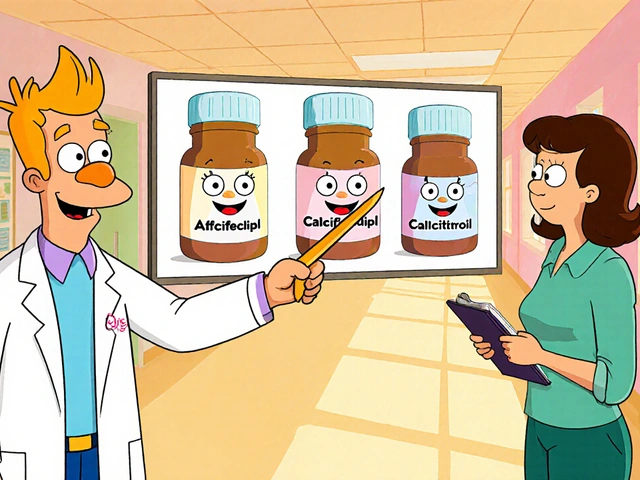IBD Treatment: Real‑World Options You Can Use Today
If you’ve been told you have inflammatory bowel disease (IBD), the first thing you want is a clear plan. IBD isn’t one size fits all – it covers Crohn’s disease, ulcerative colitis, and a mix of gut inflammation that shows up differently for each person. The good news is there are proven medicines, diet tweaks, and lifestyle moves that can keep flare‑ups down and quality of life up.
Medication Basics You Should Know
Most doctors start with prescription drugs that calm inflammation. For mild to moderate cases, aminosalicylates like mesalamine help reduce colon irritation without heavy side effects. If symptoms are tougher, immunomodulators such as azathioprine or methotrexate step in to tone down your immune response. Biologics – think infliximab, adalimumab, or newer agents like ustekinumab – target specific proteins that drive gut inflammation. They’re powerful, but you’ll need regular blood work to watch for infections.
Don’t forget about steroids. Short courses of prednisone can knock down a flare fast, but they’re not meant for long‑term use because of weight gain, bone loss, and mood swings. When your doctor phases steroid use, they’ll usually pair it with a maintenance drug to keep you steady. Talk openly about side effects; sometimes a tiny dose adjustment makes a big difference.
Living with IBD: Diet, Lifestyle, and When to Consider Surgery
Food can feel like a minefield, but you don’t have to give up everything you love. Keep a simple food diary for two weeks – note meals, symptoms, and timing. Common triggers include high‑fiber raw veggies, spicy foods, and dairy. Many people find relief with a low‑FODMAP diet or by cutting out gluten, but the key is personal testing, not a blanket restriction.
Staying hydrated is crucial, especially during diarrhea‑heavy flare‑ups. Aim for at least eight glasses of water a day and consider oral rehydration salts if you’re losing a lot of electrolytes. Regular, moderate exercise – walking, yoga, or swimming – can improve gut motility and reduce stress, which itself can trigger flares.
Stress management isn’t optional. Mind‑body tools like meditation, deep‑breathing, or cognitive‑behavioral therapy have solid research backing their ability to lower flare frequency. If anxiety or depression creeps in, talk to your doctor about counseling or medication; mental health and gut health are tightly linked.
When medicines and lifestyle tweaks aren’t enough, surgery becomes an option. For ulcerative colitis, a colectomy can cure the disease, while Crohn’s patients might need stricturoplasty or segmental resection to remove damaged bowel. Surgery isn’t a last‑ditch failure; many report a better quality of life afterward.
Regular follow‑up visits are a must. Your doctor will monitor blood counts, liver function, and sometimes colonoscopies to check disease activity. Keep a list of questions ready for each appointment – ask about new drug options, vaccine needs, and any side effects you’ve noticed.
Bottom line: IBD treatment blends medication, smart eating, active living, and occasional surgery. By staying informed, tracking your own triggers, and working closely with your healthcare team, you can put the disease on a manageable schedule instead of letting it run your life.








Categories